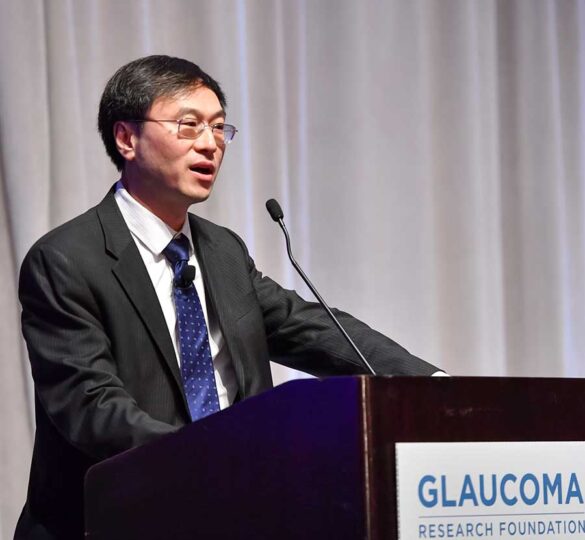Ask the Expert: Alternative Therapies for Glaucoma
The only proven therapy for glaucoma is lowering interocular pressure. But there is a lot of interest from patients in knowing, "What else can I do?”

Potential Alternative Treatments
At the first annual Glaucoma Patient Summit I presented information about alternative therapies for glaucoma. There are numerous potential alternative therapies for glaucoma.
I talked about marijuana (it does lower eye pressure, but the duration is limited, side effects can be problematic, and it is not recommended for glaucoma treatment). I talked about ginkgo biloba (there may be both benefits and risks). I talked about Memantine, which is a drug that’s available that was tested for glaucoma neuroprotection (in clinical trials, it was not found to be effective for glaucoma). I also talked about acupuncture (studies have found it is not effective in treating glaucoma). And I talked about maintaining healthy blood pressure and special considerations for people who have low blood pressure.
The only proven therapy for glaucoma is lowering your interocular pressure (IOP). That was said throughout the conference. Really all that doctors can do that can keep glaucoma from getting worse is to lower your interocular pressure. Treatments for glaucoma include medications, laser treatment, and surgical treatments to lower intraocular pressure. It’s important for patients understand that.
Lifestyle Changes
However, there’s a lot of interest from patients in knowing: “what else can I do?” Things like nutritional information, lifestyle changes, mental health aspects of glaucoma, and exercise.
Nothing is absolutely proven to help prevent glaucoma progression, but one of the promising alternatives is meditation. It seems to lower intraocular pressure based on a couple of studies from India. It’s easy to recommend mindfulness meditation because it’s good for your overall health. Meditation lowered some of the factors in the blood that were associated with stress and inflammation, so it’s also probably good for your optic nerve. It seemed to enhance some factors that may be protective of your optic nerve as well. The study researchers also looked at quality of life factors, and those were improved with meditation. So, I think that meditation is an easy alternative therapy to recommend to patients. This is relatively new study data that was reported in the past year or two.
Another area that I discussed was the concept that low blood pressure may be bad for your optic nerve and therefore glaucoma. People with pathologically low blood pressure, typically 90 over 60 or lower than those numbers, may benefit from having their blood pressure increased. Some of my colleagues, myself included, have told that subset of our patients with very low blood pressure to consider increasing the salt intake in their diet to elevate their blood pressure, and that may be beneficial. Your ophthalmologist may want to talk to your internist or primary care physician about possibly not over-treating high blood pressure because that has also been associated with glaucoma worsening in some recent studies. This continues to be an area of active research.
It is important to stay informed but be sure to check that the source of your information is reliable. You can get a lot of information on the Internet that is simply not accurate. Discuss any potential dietary and lifestyle changes with your eye doctor.
Organizations like the Glaucoma Research Foundation and the American Academy of Ophthalmology can be relied upon for accurate and up-to-date information about glaucoma and eye health. Events like the Glaucoma Patient Summit can help by providing an overview of the latest in glaucoma management and taking care of yourself, and it lets you be an active participant in your own care.
Watch the Video
Article by Shan Lin, MD.
Posted on April 22, 2020; Last reviewed on October 21, 2021.

Shan Lin, MD
Shan Lin, MD is a glaucoma specialist at the Glaucoma Center of San Francisco and co-Director of Research at the Glaucoma Research and Education Group. Dr. Lin specializes in glaucoma and cataract surgery. His areas of research include new medications and surgeries for treating glaucoma.